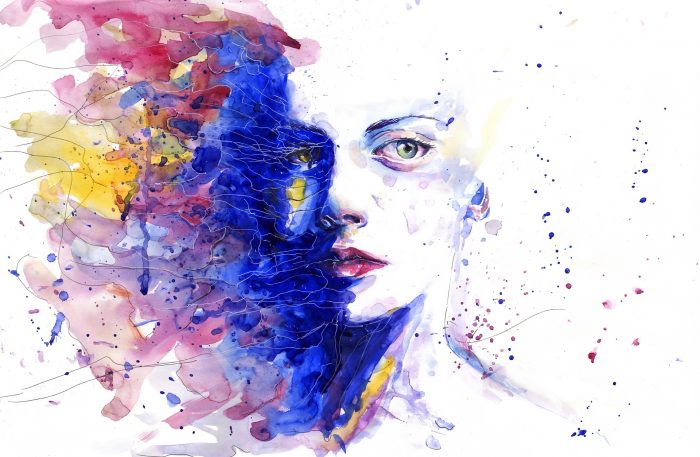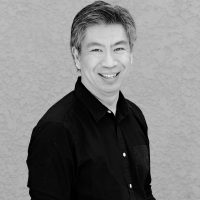“You have a choice.”
I get tired of hearing that quote sometimes. It’s almost like hearing people tell you to “get out of your comfort zone.”
I get it.
From a cognitive and rational perspective, having a choice is 100 percent true.
But when we make poor choices or decisions based on how we feel at certain times, is it really helpful to say to someone you have a choice?
Yes, we choose to get angry. We choose to pick a fight. We choose to feel anxious, depressed and worried. I get it. We are ultimately the architects for our emotions and behaviors and we are ultimately accountable for what we spit out.
But again, I ask you, is it really healthy and helpful to say to someone, you have a choice on how you feel?
Are all choices that easy to make?
When you tell someone you have a choice on how you feel, do you actually believe that the brain is like a simple light switch that can flip your emotions on and off just by blinking? How ludicrous is that?
Yes, there’s always a choice, but choices are not always easy to make. If they were, the world would be filled with everyone doing the right thing, feeling happy, all the time. But that’s not reality. Why not?
Examples:
- Why doesn’t an alcoholic just quit drinking? They have a choice, right? But if I told the person that, how helpful is it really? It’s an addiction that they can’t just turn off. There’s a backstory of why they went down that path. There’s years of pain they endured.
- If I told my teenage son with depression who was cutting himself years ago that he has a choice to feel depressed, is that going to magically make him re-think about his feelings and actions? His depression is both circumstantial and physiological. He’s an only child with no cousins and with no one else he feels safe with.
- When my son was cutting himself, I felt terrified, anxious, worried and frightened. Do I choose to feel that way? Sure, I suppose so, but not really because I’d have to be a fucking robot to not feel that way.
- Why do people stay in an unhealthy or abusive relationships? Although they have a choice is it helpful to say, you have a choice? Maybe they truly do love the person. Maybe there’s financial hardships. Maybe there’s fear of safety if they leave. Maybe there’s a backstory that we’re unaware of.
Choices are made based on the thoughts and feelings we have. These thoughts can sometimes be created by past woes, experiences and triggers. Tuning them out isn’t as simple as saying you have a choice. People who experienced childhood trauma need to regain a sense of themselves before we can learn to make healthier choices consistently.
Saying to someone you have a choice on how you feel undermines a person’s intelligence. It can be demeaning. It’s ignorant and naive to the person’s past and what they’ve been through that shaped their poor choices. Instead, share compassion and understanding about their choices. Educate and teach, rather than underscoring their unhealthy choices.
I just launched the last of my three part online series of workshops titled Undoing the Effects of Childhood Abuse and Trauma. My goal is to provide that safe space of understanding and validation to those who experienced childhood abuse and to help people begin their healing journey. My hope is that those who experienced abuse, like myself, can regain a part of themselves to learn to make healthier choices.
So the next time you hear a motivational speaker, blogger, or an expert on life say You Have a Choice, remember the following (with exclamation marks!)
- The poor choices we make sometimes comes from a place of hurt.
- Reshaping how we make decisions takes time, practice and patience. Change does not happen overnight and certainly doesn’t happen when someone says you have a choice.
- It might be easier for some, but adult survivors of childhood abuse and trauma can be sensitive and experience triggers that makes some healthier decisions more difficult to make.
- What role models did people who experienced childhood abuse have to learn from to make healthier choices?
- Two people who experienced the same trauma come out differently from the experience. Thus, how they respond to certain things can be different. They heal at different rates and making healthier choices can be difficult when their brains are wired to their negative past.
Yes, you have a choice. But some choices are easier to make than others, I understand. But when not-so healthy choices are made, take the time to slow things down for yourself and evaluate why they were made. It’s not about blaming someone else because no one makes you feel a certain way. Your feelings and thoughts are yours to own, so dig deep and learn more about why your choices aren’t consistently healthy ones and you might discover a world about yourself that you never knew before.
Jason Lee
Author of Living with the Dragon
@triggerhappiness on Facebook
Bio:
“What we experience in life are gifts. Good or bad, they’re all gifts to help us delve deeper into ourselves and learn to become even greater than we already are!”
Hi!
I’m Jason Lee and I’m an author, online instructor and advocate for mental health from Vancouver, BC, Canada. My goal is simple: I want to help improve everyone’s quality of life by promoting mental wellness into their daily lives. I’ve worked with mental health organizations across the country, promoting awareness, reducing stigma and educating my audience through engaging discussions and meaningful conversations.
Origin:
Through lived experiences of childhood abuse, trauma and a family history of depression and schizophrenia, I struggled with managing my own personal well-being and mental health. After doing a ton of personal development work with some exceptional counselors, along with my undying commitment for change, I managed to successfully transform my life and become my own architect for new and healthier beliefs.
I passionately educate others around the world about mental health, trauma and stress management through my best selling book Living with the Dragon, online workshops, blogs and speaking engagements.











Read 1 comment and reply